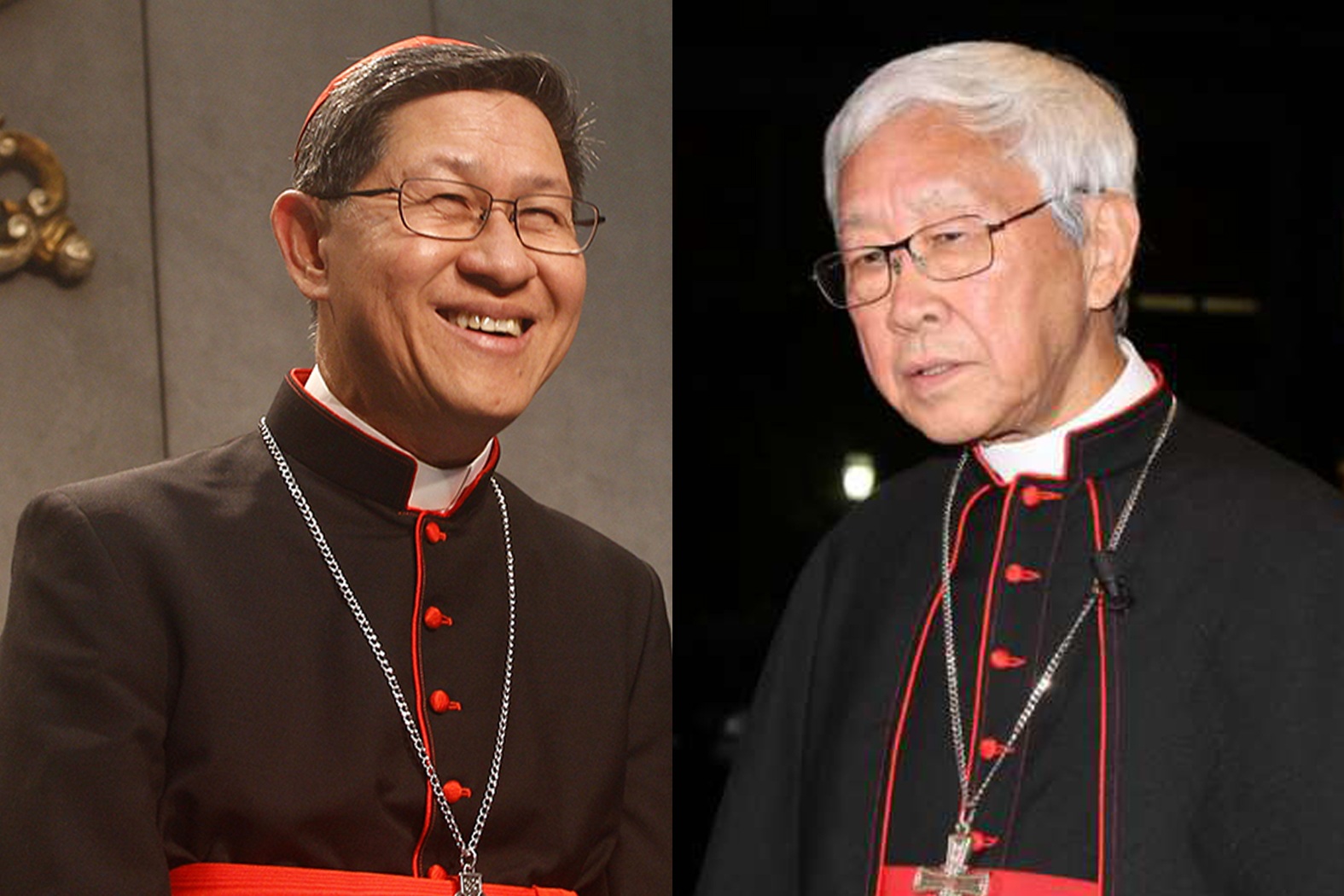
“[B]e it done to me according to your word,” Tagle said as he broke down into tears, echoing the Blessed Virgin’s acceptance of her role in the salvation of mankind as the Mother of God.
Apart from the prospect of leaving the Archdiocese of Manila, his home for the last eight years, the enormous challenge of his new role in Rome – prefect of the Congregation for the Evangelization of Peoples – must have dawned upon the 62-year-old prelate.
Tagle’s Dec. 8 appointment to the important Vatican dicastery (a department) was immediate. His name is now on the congregation’s profile on the Vatican website, and on catholic-hierarchy.org, Wikipedia and elsewhere, the See of Manila is listed as vacant.
In Manila, Tagle was a spiritual leader in-charge of the souls of more than 3 million fervent Filipino faithful, and was known simply by his nickname “Chito.”
At the Vatican, he will have a significantly wider ambit, covering a total of 1,115 “ecclesiastical circumscriptions” including 188 archdioceses, 791 dioceses, 77 apostolic vicariates and 38 apostolic prelatures all over the world, according to Agencia Fidez, the news agency under Tagle’s congregation that compiles statistics on missionary territories.
The congregation, founded in 1622 and formerly known as the Congregation for the Propagation of the Faith (“Propaganda Fide”), is mandated by church law to “direct and coordinate throughout the world the actual work of spreading the Gospel as well as missionary cooperation.”
In addition, he will have to confront the question of China and its underground church, and carry out a controversial 2018 “provisional” agreement between the Vatican and Beijing on the appointment of Chinese bishops.
The congregation, in tandem with the Vatican Secretariat of State led by Italian Cardinal Pietro Parolin, played a major role in the signing of the deal that lifted excommunications on seven illicitly ordained bishops belonging the state-recognized Chinese Patriotic Catholic Association (CPCA), under a strategy to normalize diplomatic relations between the Holy See and Beijing.
It is a complicated issue. Legitimizing the seven Chinese-appointed bishops meant that a number of validly consecrated bishops had to step aside.
The resistance movement, led by Cardinal Joseph Zen, the retired bishop of Hong Kong, claims the deal would drive more Catholic faithful further underground.
The Vatican in June released pastoral guidelines encouraging Catholics to join the CPCA for the sake of unity, noting that “clandestinity is not a normal feature of the Church’s life” and that Chinese authorities had committed to “respect” Catholic doctrine.
Cardinal Zen however argues that the patriotic association is objectively schismatic, more loyal to the Beijing overlords than to the pope. And he minces no words in accusing the Vatican of selling out the faithful to China.
The Vatican, for its part, rebuked Zen’s camp last year for “fostering confusion and controversy,” in particular for accusing Vatican officials of manipulating the pope on the Chinese issue.
Zen opened a new line of attack in a blistering op-ed for the Washington Post last week, taking the Vatican to task for its marked silence on the Hong Kong protests. “This is regrettable — but should not come as a surprise. The line followed by the Vatican in recent years when dealing with the threatening China giant has been appeasement at any cost,” he said.
Zen also revealed that Parolin shut him out of the process by dismantling a China commission formed by the previous pope, Benedict XVI, and reassigning Archbishop Salvio Hon, the top Chinese official in the Congregation for the Evangelization of Peoples, to Greece. Parolin, he pointed out, had worked closely with the former prefect, the late Cardinal Ivan Dias of India, the first Asian to lead the congregation.
Tagle, only the second Asian to lead the congregation, will become a Vatican citizen by virtue of his position in the Curia.
But he inherits the issue in the unenviable position of belonging to a small country, the Philippines, locked in a maritime dispute with China, an emerging superpower, over resource-rich islands in the South China Sea.
Majority of Filipinos – 54 percent according to the latest poll – have “little trust” in China, while young people are increasingly finding solidarity with fellow youth leading the Hong Kong protests.
That could complicate matters as Tagle continues the Vatican’s rapprochement policy toward Beijing and mediates between Chinese Catholic faithful caught between the official, state-sanctioned church, and the suffering underground church. (Felipe F. Salvosa II)